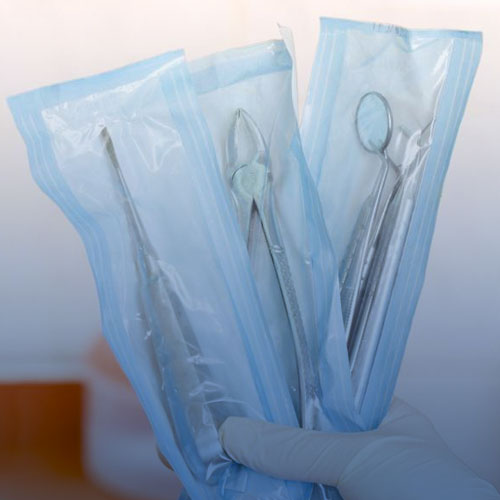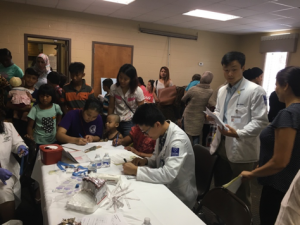This post was written by guest blogger Dr. Ahmed Howeedy.
Rates of hepatitis B transmission are on the rise in the United States. The little-known truth is why— and it has everything to do with the raging opioid epidemic that every day claims 130 lives to overdose.
How Opioid Epidemic Is Fueling Intravenous Drug Use
Heroin and prescription painkillers like oxycodone, hydrocodone and morphine have increasingly served as intravenous drugs of abuse for a growing number of Americans who suffer from untreated addiction to these drugs. That increase in intravenous drug use—and with it, higher rates of exposure to unclean needles and IV drug paraphernalia, coupled with low rates of hepatitis B vaccination—has fed a nationwide outbreak of hepatitis B. New cases of the liver disease are reportedly up by an average of 20 percent across the country, according to the Centers for Disease Control and Prevention (CDC).
How Hep B and the Opioid Epidemic Are Related
It’s therefore no coincidence that areas where the opioid epidemic has hit hardest have seen especially dramatic increases in hepatitis B transmission. Consider the following data collected by the U.S. Department of Health and Human Services:
- In opioid hot spots such as Kentucky, Tennessee and West Virginia, the incidence of acute hepatitis B infection rose by 114 percent between the years 2009 and 2013, CDC reported.
- North Carolina reportedly saw a 56 percent jump in new Hep B cases in 2014-2016.
- And, in Massachusetts, where the government declared in 2015 that there was an opioid crisis, cases of Hep B linked to intravenous drug use increased by 78 percent more than the national average in 2017, according to a Department of Public Health advisory.
How to Intervene When You Suspect Intravenous Drug Use
What is perhaps most tragic about the link between hepatitis B and intravenous drug use is that it is preventable, thanks to public health education and the hepatitis B vaccine. Today most reputable opioid treatment programs will educate incoming patients about the risks of hepatitis B, by testing for the disease and administering the vaccine. And, because quality opioid treatment addresses the roots of addiction that led someone down the path of intravenous drug use, a good rehab program is also the best way to help an intravenous drug user quit their risky behaviors and reduce their risks of overdose.
For family members who suspect their loved one is an intravenous drug user or in imminent danger of intravenous drug use, then, consider having an open, honest and non-judgmental conversation about your concerns. This is not the time to excoriate your loved one for engaging in risky behaviors. The most important, immediate concern should be one of preventing further harm in the form of an overdose, hepatitis B and other dangers like HIV. Here are some things you can do to intervene quickly and effectively when you suspect intravenous drug use:
- Encourage your loved one to get treatment for their addiction. Sometimes an intervention will be the most persuasive approach. Equally critical is finding quality integrated care that will treat the medical, neurological, psychological, and behavioral dimensions of an opioid addiction. A trusted treatment provider will offer the hepatitis B vaccine, yes. They will also offer medication-assisted treatment (MAT) for relieving the opioid cravings that so often can trigger a relapse—naltrexone has helped many of my patients with opioid addiction—but a good provider will also take an integrated, wraparound approach that treats the whole person and not just the physical aspects of their addiction.
- Take your loved one to their primary care doctor for a checkup. Sometimes progress has to come in smaller steps. If you can’t persuade your loved one to enter a rehab program, insist on an annual check-up with their primary care doctor— and if possible, go with them. In these contexts, it’s routine for doctors to ask about lifestyle choices such as drinking, smoking and illicit drug use; and, as a doctor, I’ve found that patients answer these questions honestly most of the time. (For that matter, even if a patient lies about their intravenous drug use, the signs are hard to hide in a medical exam.) In this context, your loved one will be strongly encouraged to get the hepatitis B vaccine series and counseling for other blood-borne infectious diseases which they are at risk for.
- If your loved one has given up on treatment or refuses to consider it, invite them to consider local harm reduction options. These options and their availability can depend on where you live. Many states now have needle exchange programs. There are approximately 185 such programs operating nationwide, according to a fact sheet from the ACLU. Other harm reduction initiatives include safe injection education and greater public access to the overdose prevention drug naloxone.
Hepatitis B may be the slower, more insidious killer in an opioid epidemic that’s better known by the overdose figures— but it’s a dangerous killer nonetheless. The good news is that with greater public awareness about the problem of prescription painkillers, intravenous drug use and their link to Hep B, we can put an end to that killing spree. Make sure that yourself and your loved ones are protected from hepatitis B by speaking with them or a doctor about the 2-3 doses vaccine!
Dr. Ahmed Howeedy is Chief Medical Officer at FHE Health, a nationally recognized behavioral health provider. Learn more about FHE Health’s addiction treatment programs.



